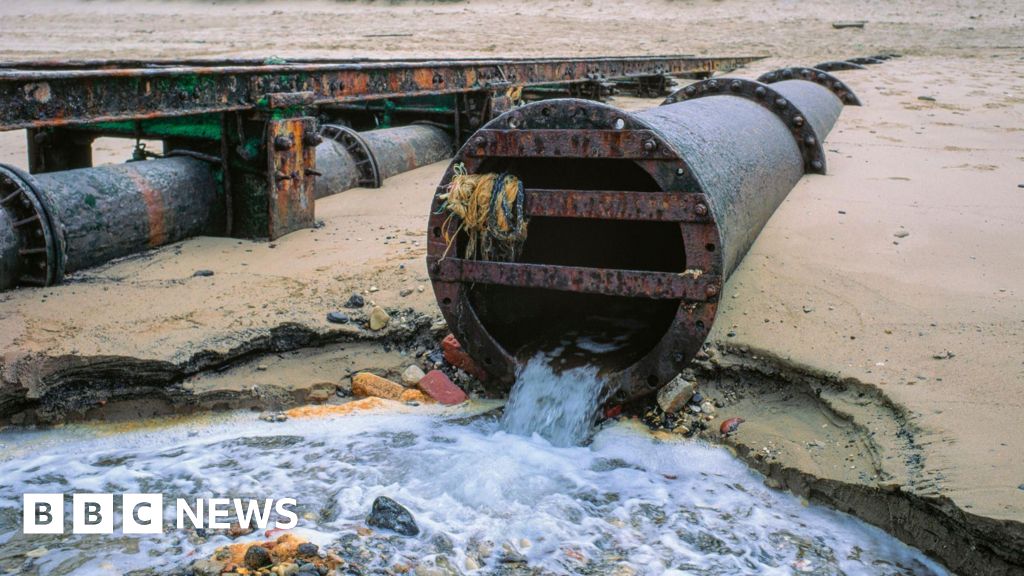The proposal to cap water rate increases would create a “risk” that companies would not be able to raise enough money to stop sewage spills, the companies are expected to say later.
In July, water regulator Ofwat proposed capping water bill increases at an average of £19 a year, with a final decision due to be made in December.
But industry lobby group Water UK is due to argue on Wednesday that the cap would “hinder” companies’ ability to improve their services.
Water companies have been criticised by activists for paying dividends to investors and bonuses to executives without investing enough in the business.
When the limits were first proposed as part of a draft decision on water companies’ 2025-2030 business plans, Water UK said the regulator had “got this wrong”.
The proposed increase is less than a third of what the water companies have requested, and they argue they should be able to charge higher rates to fund repairs to leaks.
The group argued that water companies must make a profit to attract investment needed to improve water systems that are struggling to cope with increased rainfall caused by climate change.
Britain’s largest water company, Thames, is already in financial crisis after shareholders abandoned plans for further investment.
A report by consultancy Oxela, to be published on Wednesday on behalf of Water UK, said Ofwat’s proposed decision was “likely to raise significant investability issues for the whole industry”.
“In particular, there is a significant risk that the industry will be unable to raise the new equity investment required to fund its proposed investment plans,” it adds.
An Ofwat spokesman told the BBC it would carefully consider all responses to the proposals.
“We look forward to receiving responses from many organisations, including water companies, customers, environmental and consumer groups and investors.”
“These will reflect a diversity of opinions on what we have proposed.”
Critics say water companies have historically prioritized executive pay and shareholder dividends over investment.
They proposed banning director bonuses until the leaks and sewage spills are fixed.
Water UK’s comments come as Thames, Yorkshire Water and Northumbrian Water face a potential £168 million fine from Ofwat over a “series of failings” over leaks over many years.
The amount of raw sewage discharged by water companies into England’s rivers and seas more than doubled last year.
Meanwhile, a BBC investigation earlier this year found that water companies in England may have illegally discharged sewage as many as 6,000 times in 2022 in breach of permits.



